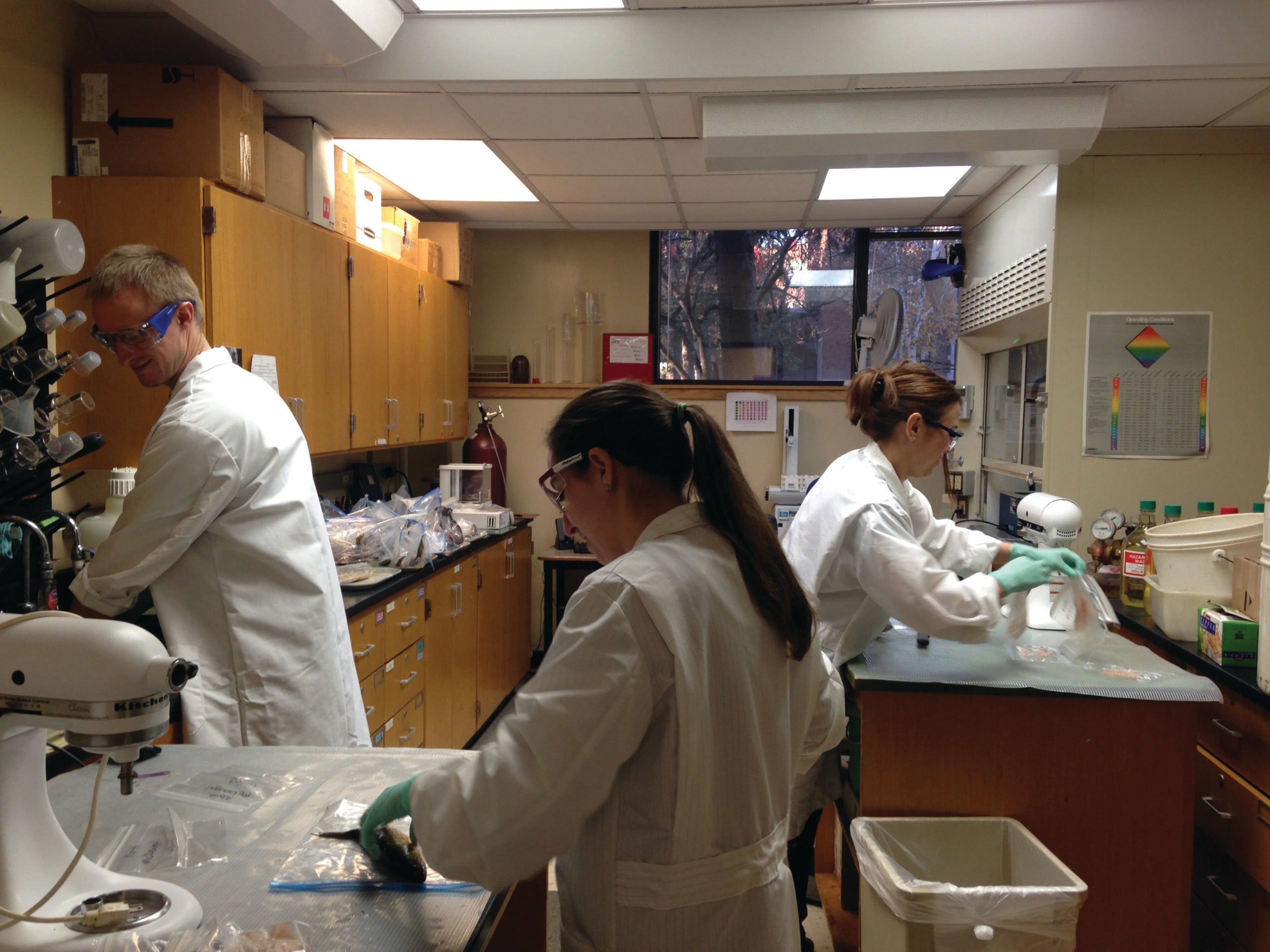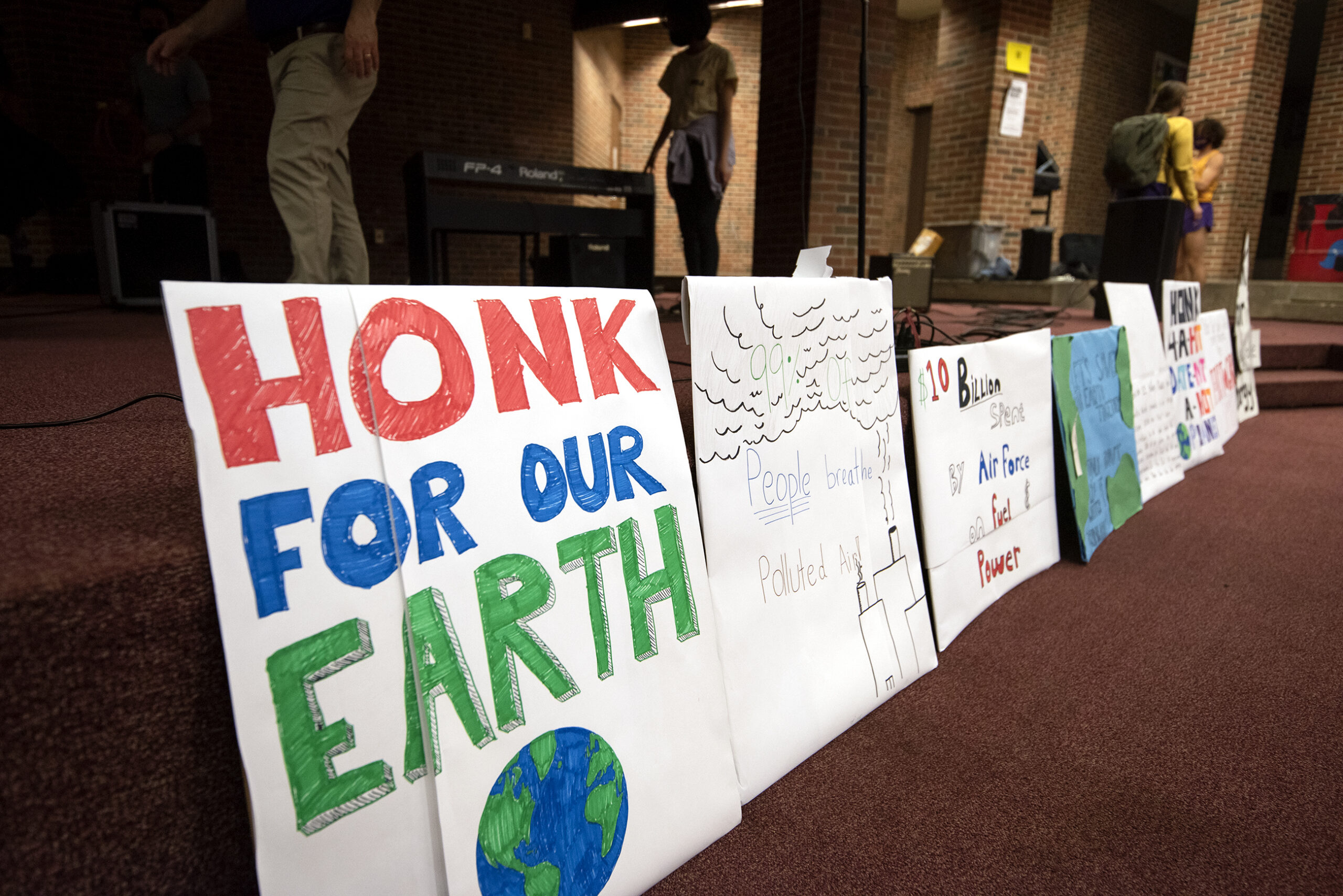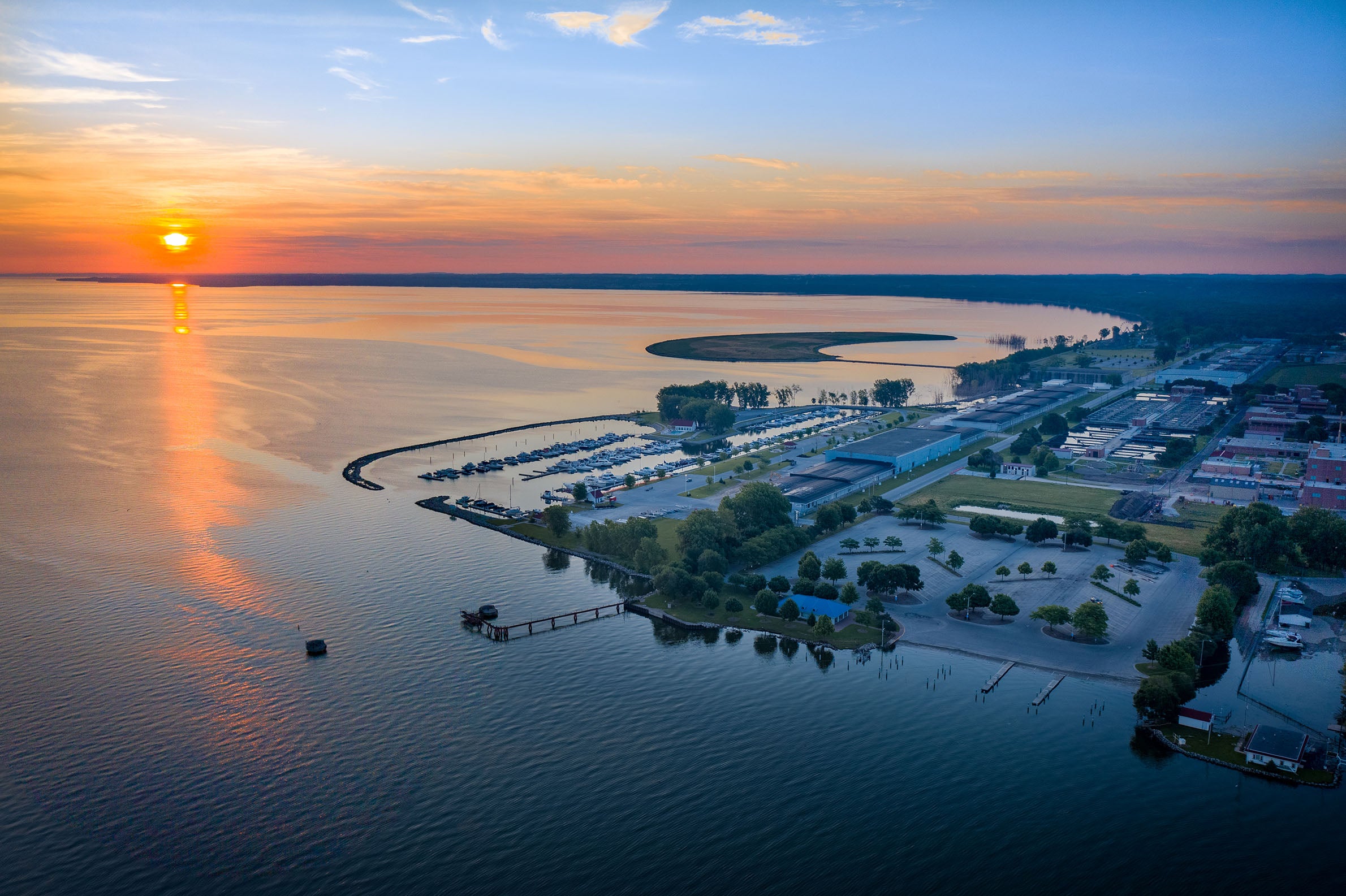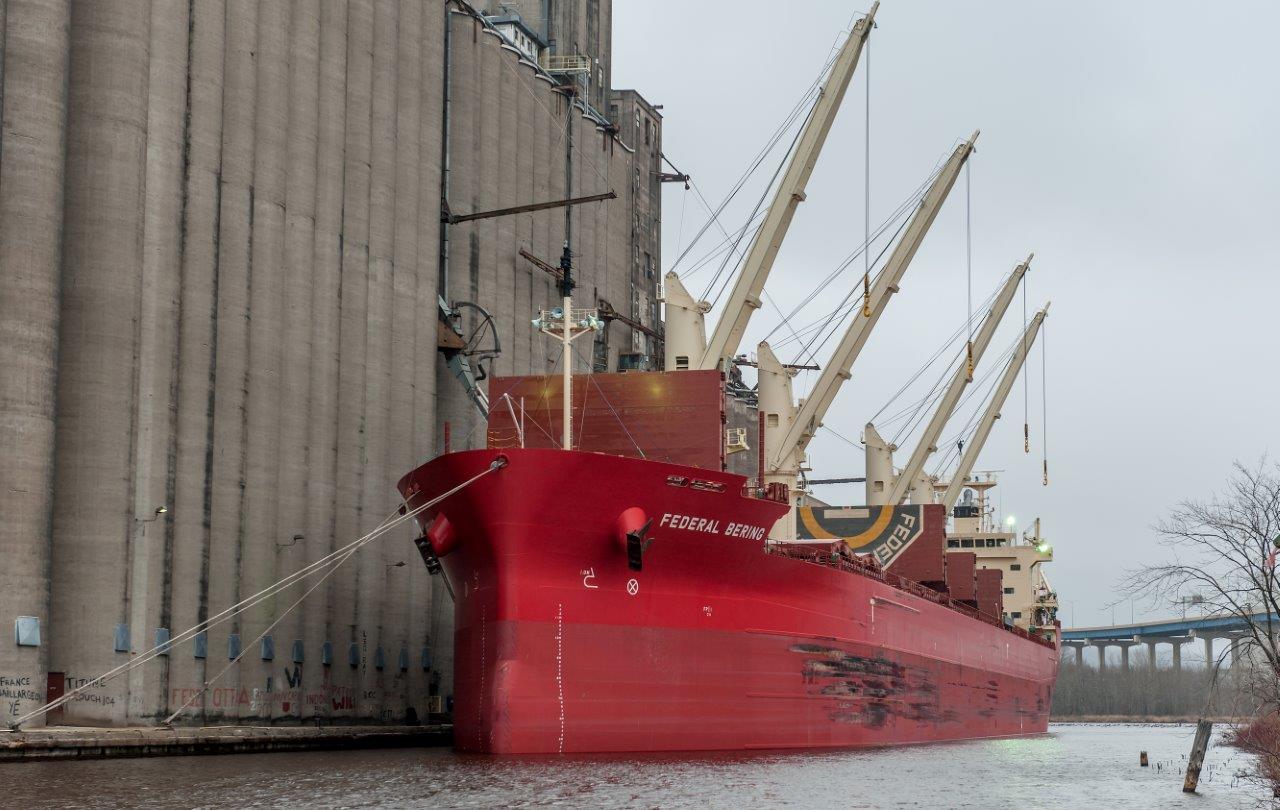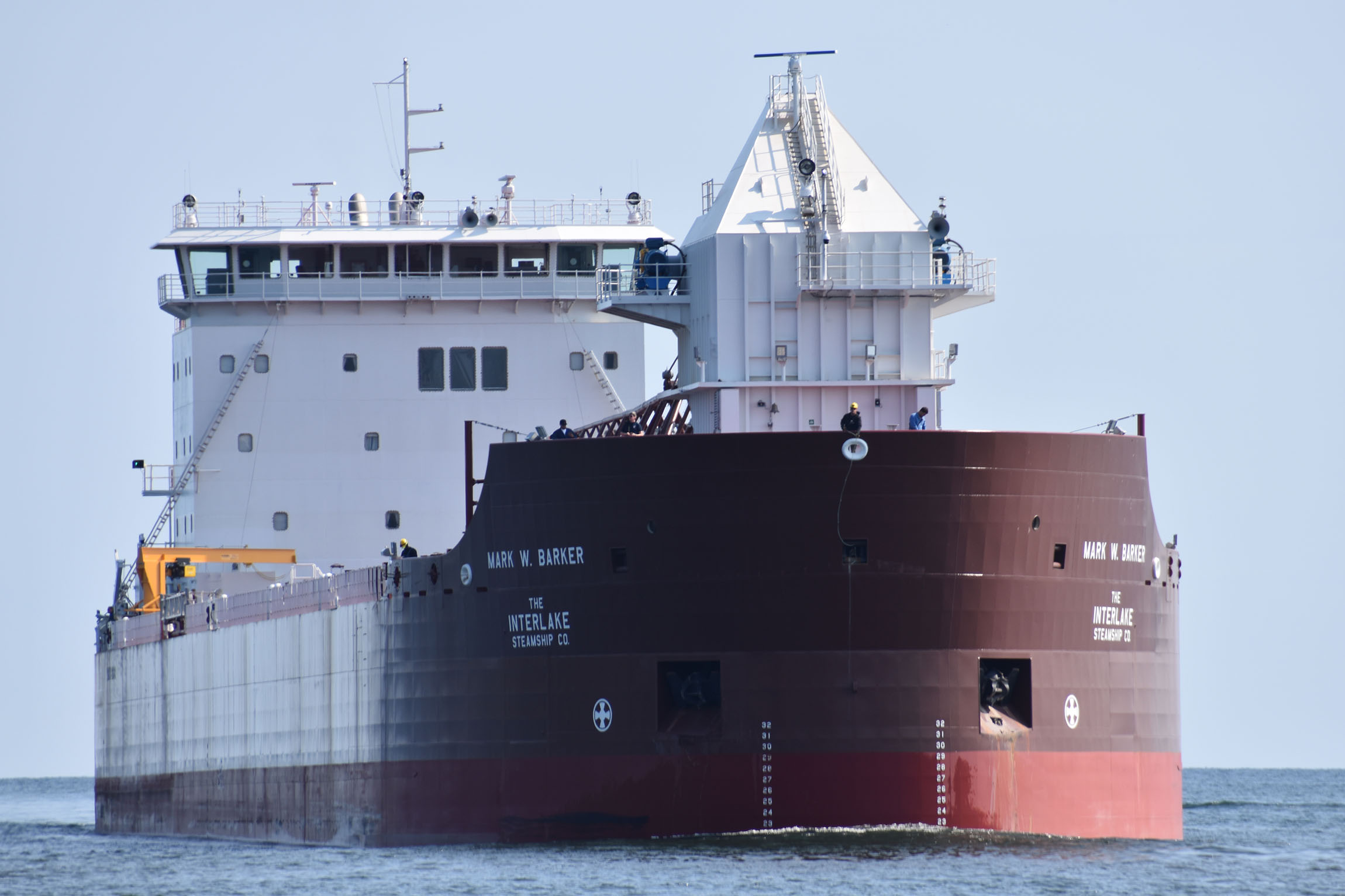The Lake Superior Research Institute (LSRI) is celebrating 50 years of research at a conference being held this week at the University of Wisconsin-Superior.
The LSRI began its work in 1967. Since then, the institute has worked on more than 600 projects over the last 50 years that have been paid for with more than $60 million from outside funders, according to director Matt TenEyck.
One of the institute’s first major projects sought to address shoreline erosion. However, TenEyck noted one of the more crucial roles for LSRI included researchers’ involvement in setting national water quality criteria to protect surface and drinking water.
Stay informed on the latest news
Sign up for WPR’s email newsletter.
“So, this group here — it was probably a combination of five or six researchers — combed the literature, pulled all of the data together for certain toxicants, and then wrote these water quality standards,” he said. “They were used by the EPA, and the EPA looked, and, if that water passed that threshold, then there was some repercussions depending on who or what was causing that issue.”
One of the largest projects the institute is working on right now is the Green Shipping Initiative. Over the last dozen years, the LSRI has been working with the Northeast-Midwest Institute and the Great Ships Initiative to test ballast water treatment systems in an effort to prevent further spread of aquatic invasive species. Under a new five-year cooperative agreement, TenEyck said LSRI and the U.S. Department of Transportation Maritime Administration are partnering to build on that work.
“They also want us to look at some other kind of green shipping activities. For example, if a ship were to convert from one type of diesel to another type of diesel, we may go out and measure the air emissions or we could look at some other green shipping bilge water issues that may be installed in these ships,” he said. “The biggest part of that is that effort on understanding the spread of invasive species all with a focus in the Great Lakes region.”
National Geographic Emerging Explorer Alexandra Cousteau will provide the keynote address at this week’s conference celebrating the history of the institute. Cousteau, granddaughter of famous explorer Jacques Cousteau, said organizations like LSRI play an important role in sustainable water management.
“Local organizations like the Institute are incredibly important in supporting those kinds of actions and helping people understand what the situation is, what the challenges are, what some of the solutions can be, and are important members of the community in helping us preserve and protect our water resources,” she said.
Following her family’s legacy, Cousteau has been working on ocean conservation and sustainable water management through organizations like the international nonprofit Oceana and her own nonprofit Blue Legacy. In the past few years, she said she has shifted her work from raising awareness of critical water issues to highlighting work to address those challenges.
“I think we experience a kind of community and a kind of coming together that we don’t get in any other way,” she said. “When we work together to improve our natural environment, it’s really an experience unlike any other.”
The conference will feature former directors and include sessions about past and present research being done at the Lake Superior Research Institute.
The two-day event will begin this Thursday with a welcome reception in the Yellowjacket Union at UW-Superior from 6 to 9 p.m. Cousteau will give the keynote address on Friday at 7 p.m. in the Thorpe Langley Auditorium in Old Main on the UWS campus.
Wisconsin Public Radio, © Copyright 2024, Board of Regents of the University of Wisconsin System and Wisconsin Educational Communications Board.

